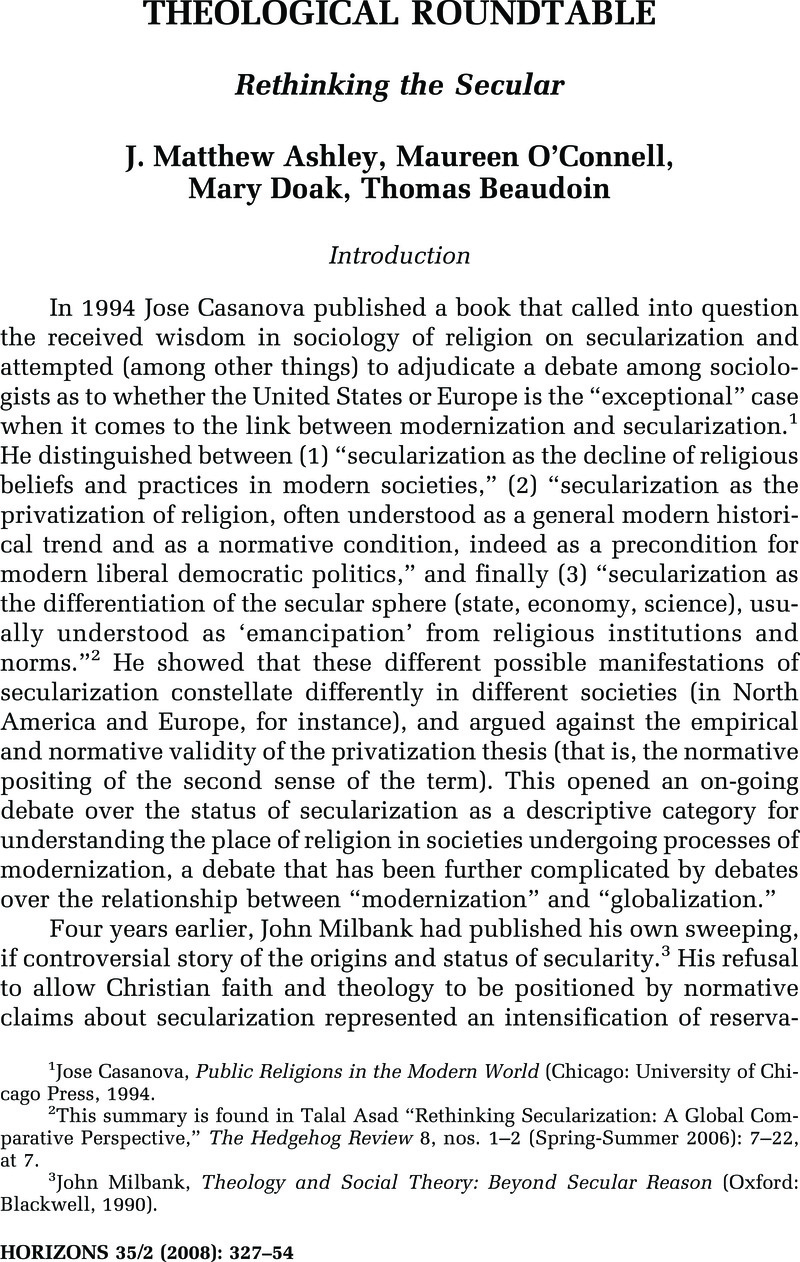No CrossRef data available.
Article contents
Rethinking the Secular - IV. Asad on the Secular
Published online by Cambridge University Press: 18 March 2013
Abstract

- Type
- Theological Roundtable
- Information
- Copyright
- Copyright © The College Theology Society 2008
References
26 Asad, Talal, Formations of the Secular: Christianity, Islam, Modernity (Stanford, CA: Stanford University Press, 2003).Google Scholar Henceforth cited as FS. The conversation on Asad's genealogy of the secular continues in Scott, David and Hirschkind, Charles, ed., Powers of the Secular Modern: Talal Asad and His Interlocutors (Stanford, CA: Stanford University Press, 2006).Google Scholar
27 Adapted from Asad, , Genealogies of Religion: Discipline and Reasons of Power in Christianity and Islam (Baltimore, MD: Johns Hopkins University Press, 1993), 54.Google Scholar Henceforth cited as GR.
28 FS 138. Asad's perspective on the increasing development and enforcement of transnational or international laws is that these laws come from groups of states that act together as joint states on the one hand, and that typically lack power to make their transnational law effective in member states, on the other. (FS 139)
29 “I point to a basic assumption about ‘the human’ on which human rights stand: Nothing essential to a person's human essence is violated if he or she suffers as a consequence of military action or of market manipulation from beyond his own state when that is permitted by international law” (FS 129).
30 Wolf, Susan, “Sanity and the Metaphysics of Responsibility,” in Schoeman, Ferdinand, ed. Responsibility, Character, and the Emotions: New Essays in Moral Psychology (New York: Cambridge University Press, 1987), 55Google Scholar, cited at FS 73.
31 Lakeland, Paul, The Liberation of the Laity: In Search of an Accountable Church (New York: Continuum, 2003), especially 149–85.Google Scholar
32 Ibid., 151.
33 Ibid.


